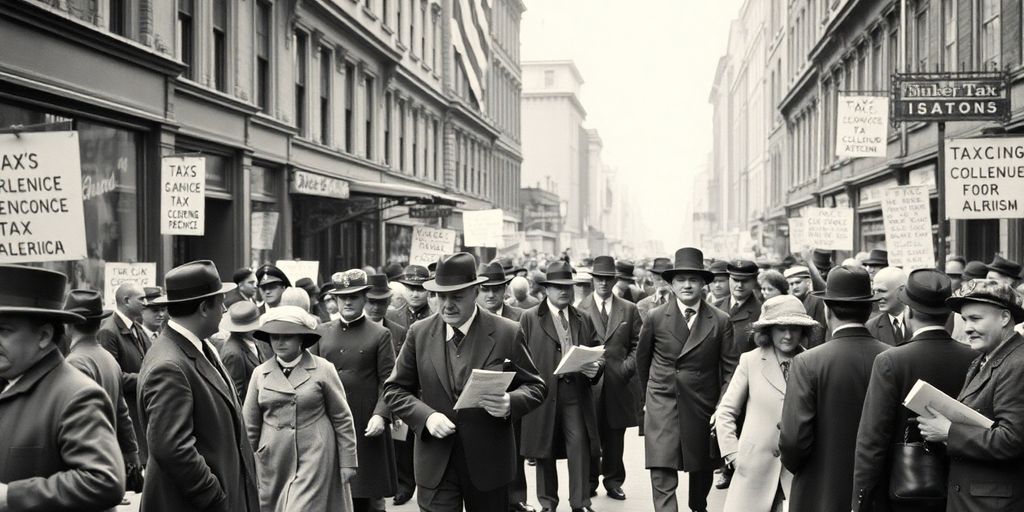The Creature From Jekyll Island: Unmasking The Federal Reserve

In a thought-provoking presentation, G. Edward Griffin delves into the origins and implications of the Federal Reserve System. He argues that the Federal Reserve is not just a banking institution but a deceptive cartel that operates against the public interest. This article explores the key points from his talk, shedding light on the hidden truths behind the Federal Reserve’s creation and its ongoing impact on the economy.
Key Takeaways
- The Federal Reserve was created in secrecy by powerful bankers.
- It operates as a cartel, prioritizing profits over public welfare.
- The system leads to inflation, hidden taxation, and economic instability.
- Abolishing the Federal Reserve is proposed as a solution to its failures.
The Deceptive Nature Of The Federal Reserve
Griffin begins by referencing the philosopher Epictetus, who stated that appearances can be deceiving. He likens this to the Federal Reserve, which presents itself as a government entity but operates more like a private cartel. The Federal Reserve, he argues, is an appearance of the fourth kind: something that is not what it seems.
The Call For Abolition
Griffin asserts that the Federal Reserve does not need an audit; it needs to be abolished. He lists seven reasons for this drastic measure:
- It cannot achieve its stated objectives.
- It operates against the public interest.
- It is a tool of usury.
- It imposes unfair taxes.
- It encourages war.
- It destabilizes the economy.
- It supports totalitarianism.
These points, he claims, are not just opinions but can be substantiated with evidence.
The Secret Meeting At Jekyll Island
The crux of Griffin’s argument revolves around the secret meeting held on Jekyll Island in 1910, where the Federal Reserve was conceived. This meeting involved prominent bankers and politicians who traveled under the guise of secrecy, using code names and avoiding detection. Griffin describes how they crafted the Federal Reserve System, which was designed to consolidate financial power rather than distribute it.
The Role Of Secrecy
The secrecy surrounding the meeting raises questions about the intentions of its participants. Griffin suggests that if the public had known the true nature of the meeting, the Federal Reserve would never have been accepted. The money trust, a term used to describe the concentration of financial power, was the very group that created the Federal Reserve, contradicting its stated purpose of breaking that power.
The Mandrake Mechanism
Griffin introduces the concept of the Mandrake mechanism, a term he uses to describe how the Federal Reserve creates money. He explains that when Congress needs money, it borrows from the Federal Reserve, which simply writes a check without any actual funds backing it. This process leads to inflation, as more money is created without corresponding value.
The Impact On The Economy
The consequences of this system are profound. Griffin argues that the creation of money out of nothing dilutes the value of existing currency, leading to inflation. He emphasizes that inflation is a hidden tax that affects everyone, particularly those who save money. The wealth generated from this system flows to the banks, which collect interest on loans made from this created money.
The True Objectives Of The Federal Reserve
Griffin contends that the true objectives of the Federal Reserve are not to stabilize the economy but to enhance the profits of its member banks. He points out that since its inception, the Federal Reserve has presided over numerous economic crises, including the Great Depression and various recessions. This track record suggests that it has failed to meet its stated goals.
The Need For Change
In conclusion, Griffin calls for a reevaluation of the Federal Reserve’s role in American society. He argues that the system must be dismantled to restore true economic stability and fairness. The Federal Reserve, he claims, is a creature that has outlived its usefulness and now serves only the interests of a powerful few.
This presentation serves as a wake-up call for those who believe in a fair and transparent financial system. The implications of the Federal Reserve’s existence are far-reaching, affecting everything from inflation to the concentration of wealth and power in society. Griffin’s insights challenge us to reconsider the foundations of our monetary system and advocate for a more equitable approach to finance.








Responses